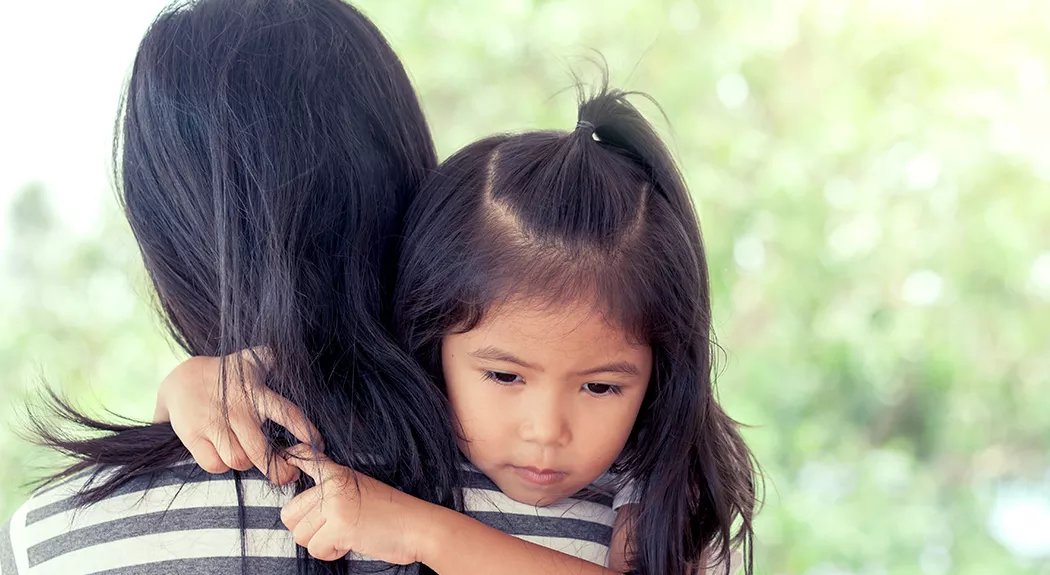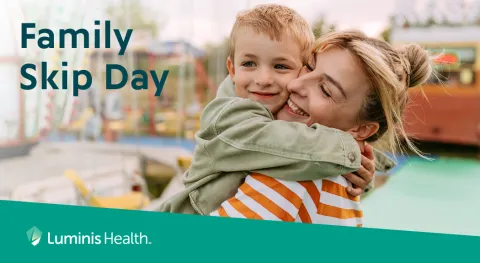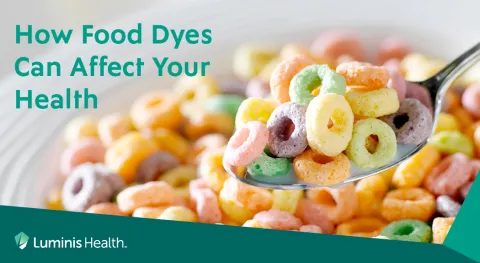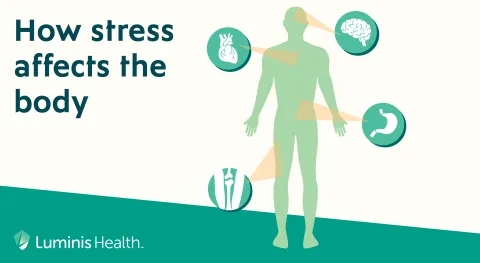by Luminis Health

As a mom, I am always thinking of the many things I have learned from my experiences. As a psychiatric nurse, I am thinking of how to promote the mental health of our children and help them grow into compassionate, social and competent adults.
One thing I have come to understand as an adult is how powerful and essential it is to give our children words to use to identify feelings. You may have seen the charts that have 20 or so feelings and faces that go with them. That’s great for older kids but overwhelming to little ones.
For me, it boils down to these five emotions: mad, glad, sad, lonely and scared. I found that my daughter and I communicated more easily when something difficult was going on if she could identify the feelings.
- Mad (angry): When a child is mad, if they can use their words, that is great! We as parents can help them know what is appropriate depending on their age. For a younger child, learning to use words instead of biting, scratching or hitting another person is crucial. One of my favorite things was to ask my daughter to draw about it. We know that coloring is almost meditative. Another tactic is to encourage physically letting out that energy through sports, running, hitting a pillow, etc. One of my personal favorites is to have a screaming minute in the car with windows rolled up to get out that anger in a safe way.
- Glad (happy): If a happy moment comes, no matter how small, help your child celebrate that feeling. You can then help them call upon that memory when it is needed. For example, “Nick, do you remember when you had that great soccer game last month and how good you felt? I know you can do this science project and feel as good about yourself!”
- Sad: This is a hard one. Children all feel sad once in a while, it comes with being human. If your child is sad for long periods of time, talks about hurting or killing him/herself, or does a self-harming action, it is time to seek professional help. Contact your pediatrician, call a mental health professional and get the needed support. If it’s urgent, call 911 or take your child to the nearest emergency room. Depression is bigger than just being sad. The National Suicide Prevention Lifeline number is 1-800-273-TALK (8255).
- Lonely: This is another hard experience that children have. Peers, siblings and family are so important to them. If there is a fight with a best friend, they can feel terrible. You know your child best. If there is a time when your child has no friends, does not like going to school, etc., it would be good to investigate further. A real possibility that we know occurs is bullying. If that is happening, help your child by making it easy to be around other kids who have similar interests. Pets can also help with loneliness.
- Scared: As an example, I’ll share a personal story. My daughter was 7 years old and in a new school when 9/11 happened. The school immediately cancelled classes and went into day care mode. She knew something was wrong as the parade of the other children were picked up. Finally, she and another boy were the only ones left with their teacher. When I could finally leave the hospital and pick her up, she hugged me and cried, telling me how scared she was because she did not know what was happening. We talked a lot about it that evening and for many months. When a child is scared, they need information and reassurance. With all of the upsetting news, it is good to help your child process the things they are hearing about at school, from other people and from the news.
Understanding your child’s feelings is so important. You are their first and best teacher. You can give them the foundation they need as they grow and learn about life. There are so many good resources on the internet for parents. The mental health of our children is one of our best resources for a positive world.
 Jo Deaton is the senior director of nursing for Mental Health at Anne Arundel Medical Center. She can be reached at 410-573-5454.
Jo Deaton is the senior director of nursing for Mental Health at Anne Arundel Medical Center. She can be reached at 410-573-5454.
Ask questions, find resources and learn more at askAAMC.org/HealthyMinds.



